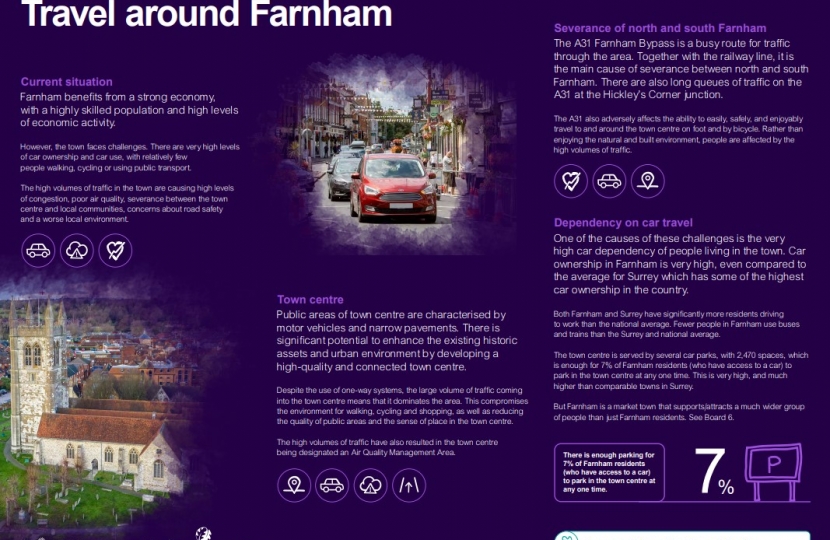
From Surrey News
A320 North of Woking improvements (Ottershaw to Chertsey)
Communities along the A320 are being asked for their views on the route.
Surrey County Council and Runnymede Borough Council want to hear how active travel could be improved along the road, as part of a programme of planned highways improvements between Ottershaw and Chertsey. This includes facilities for pedestrians, cyclists and public transport. The planned improvements will also help manage traffic as the area sees new homes being built over the next decade.
Residents and businesses are being asked to fill out an online survey to give their views. The survey will be available until Sunday March 14. After that, all the responses will be looked at and Surrey County Council’s highways team will use the information to help shape the new designs for the road. The emerging designs will be published later in the Spring, when there will be another opportunity to give feedback.
The survey can be found at www.bit.ly/A320improvements
If anyone would like a printed copy of the questionnaire, please contact Surrey County Council’s highways customer contact centre on 0300 200 1003.
Farnham Infrastructure Programme
In Farnham, residents can now comment in an early consultation on a new infrastructure plan.
The plan contains proposals for the town centre, northern and southern areas of the town, the A31 corridor as well as Farnham-wide. It is hoped the plans will reduce congestion, improve air quality, tackle climate change and encourage people to use sustainable alternatives to the car whenever they can.
The plan is the latest step in the Farnham Infrastructure Programme – a partnership between Surrey County Council, Waverley Borough Council, Farnham Town Council and Jeremy Hunt MP. It follows last year’s consultation on a vision for the programme.
People in the town can comment on the proposals until Sunday 14 March by visiting www.bit.ly/farnhaminfrastructure. Hard copies of the questionnaire are available by calling 01252 712667.
Future work
Both the Farnham and A320 projects show the importance the Council places on investing in infrastructure, which will help Surrey’s economy grow back stronger after the coronavirus pandemic. A new Infrastructure, Planning and Major Projects division has been set up within the Council, dedicated to delivering large-scale schemes within communities.
There are 100 potential infrastructure projects across the county which the Council is considering. Each project needs to be examined to assess the benefits to residents and communities and whether it should be made a priority.
At its meeting on Tuesday 23 February, Surrey County Council’s cabinet will be discussing the projects and agreeing an initial prioritisation framework. This will be based on how the schemes grow a sustainable economy, tackle health inequalities, tackle the causes of climate change and support communities.
Once the prioritisation process is finalised, Surrey County Council will undertake further development work on the prioritised projects to assess how to progress them. The council will continue to develop the remaining pipeline of schemes, ensuring they are ready to progress if and when appropriate, for example if a new funding opportunity becomes available.
The council is also starting to look at how it can ensure Surrey’s infrastructure is future proofed for the electric vehicle revolution. As more of us switch to battery operated vehicles, there will be increased demand for charging points. Surrey County Council has started a project to look at how charging infrastructure can best be rolled out across the county, to eventually ensure everyone who needs it has access to a charge point.
Colin Kemp, Deputy Leader and Cabinet Member for Infrastructure, said: “Surrey County Council recently agreed to spend £286 million on large scale infrastructure projects, so it’s important we develop an ambitious programme which maximises the benefits for our communities for years to come.
“As we emerge from the coronavirus pandemic, we want to both support changes to how we live our lives while helping the local economy grow back strongly. It’s also essential to tackle the causes of climate change by helping people to reduce the amount they use their cars.”

